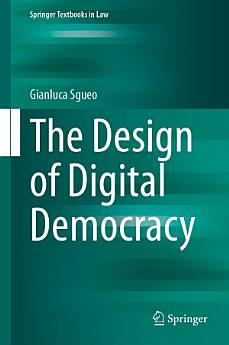The Design of Digital Democracy
Acerca de este libro electrónico
This book explores various aspects of the relationship between democracy, technology and entertainment. These include, on the one hand, the role that digital technology has in strengthening our collective intelligence, nurturing empathic relations between citizens and democratic institutions, and supporting processes of political aggregation, deliberation and collaboration. On the other hand, they comprise the challenges accompanying digital technology for representation, transparency and inclusivity in democratic decision-making.
The book’s main argument is that digital democratic spaces should be redesigned to narrow the gap between the expectations and outcomes of democratic decision-making. It suggests abandoning the notion of digital participatory rights as being fast and easy to enjoy. It also refutes the notion that digital democratic decision-making can only be effective when it delivers rapid and successful responses to the issues of the day, regardless of their complexity.
Ultimately, the success or failure of digital democracy will depend on the ability of public regulators to design digital public spaces with a commitment to complexity, so as to make them appealing, but also effectiveat engaging citizens.
Acerca del autor
Gianluca Sgueo, PhD administrative law (University of Salento, Italy) and LLM in European Public Law (National & Kapodistrian University of Athens – European Public Law Academy, Greece) is Professor in Digital Democracy in Public Spaces at the École d’Affaires Publiques of Sciences Po, Senior Associate Researcher at the Centre for Digitalization, Democracy and Innovation of the Brussels School of Governance, and Associate Researcher at the Centro de Estudos Sociais of the University of Coimbra. He is also Coordinator of the Department on Digitalization at Fondazione Einaudi, and Policy Advisor at the Department of Digital Transformation of the Italian Government. His publications include ‘Beyond Networks. Civil society coalitions, the European and global legal orders’ (Springer, 2016); ‘Games, Powers & Democracies’ (Bocconi University Press, 2018); ‘Il divario. I servizi pubblici digitali tra aspettative e realtà’ (Egea, 2022).




